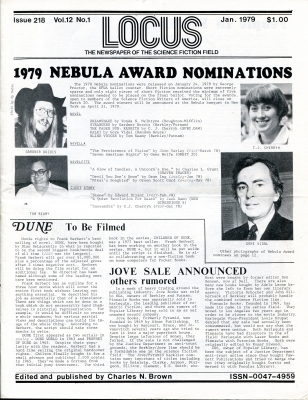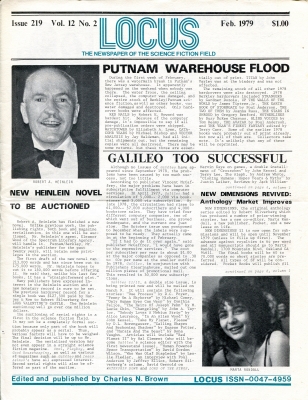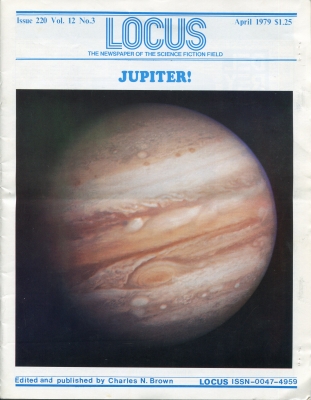The Golden Age of Science Fiction: Locus
The Best Fanzine category was not one of the original Hugo categories in 1953, but was introduced at the second awards in 1955, when it was won by James V. Taurasi, Sr. and Ray Van Houten for Fantasy-Times. Since then, some version of the award has been a constant, with the exception of 1958, when the award was dropped. Although achievement in fanzines was recognized throughout the history of the Hugo Awards, the name of the away was in flux. Originally called the Hugo for Best Fanzine, in 1956 and 1957, the award was presented for Best Fan Magazine. The name then switched back and forth at random intervals between Best Amateur Magazine (in 1959, 63-64, 66, 72-75, 77-78) and Best Fanzine (the other years in that sequence) until it permanently became the award for Best Fanzine in 1979.
Locus was nominated for its first Hugo Award in 1970, losing to Richard E. Geis’s Science Fiction Review. It was then nominated every year until 1983 with the exception of 1979, winning the Hugo for Best Fanzine in 1971, 1972, 1976, 1978, and from 1980 to 1983 inclusive, at which time it was no longer eligible for the category with the creation of the Hugo Award for Best Semi-Prozine. During the 1970s and early 80s, Locus, which began in 1968 to promote the Boston bid for a Worldcon in 1971, which became Noreascon I, was becoming less and less of a fanzine, accepting advertisements and paying for content.


